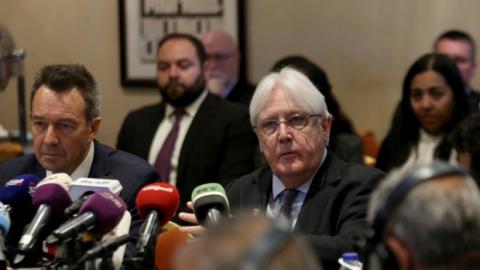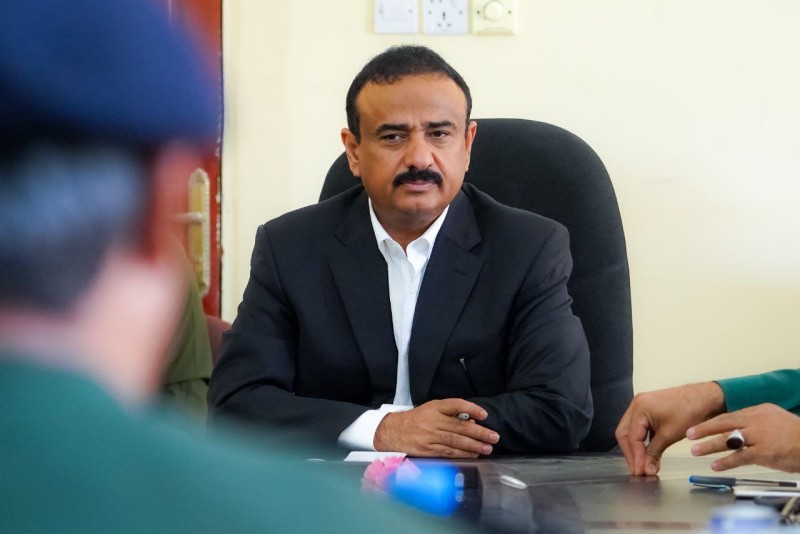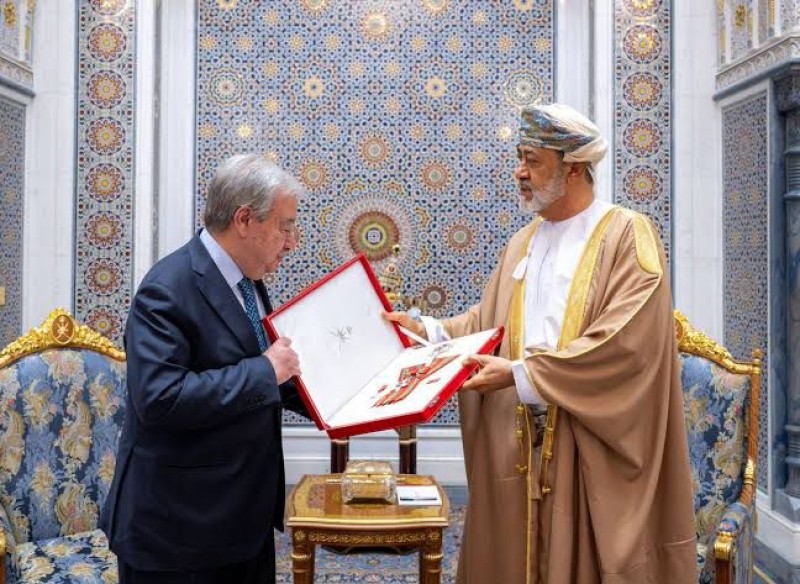UN Yemen mission to rush to Hodeidah to oversee ceasefire.


A small-scale UN monitoring mission will rush to the Yemeni port city of Hodeidah next week to oversee a ceasefire, the UN special envoy for Yemen has told diplomats in New York.
A fragile truce was secured after week-long negotiations in Sweden, the first Yemen peace talks since 2016.
The special envoy, Martin Griffiths, hopes a UN security resolution, drafted by the UK, will endorse the agreements reached in Stockholm, including the need for a UN body to supervise the port’s administration and mutual troop withdrawals.
Speaking by a video link to the security council in New York, Griffiths said: “A robust and competent monitoring regime is not just essential, it is also urgently needed and both parties have told us they would very much welcome it and indeed depend on it.”
'Yemenis are left so poor they kill themselves before the hunger does'
Read more
Griffiths said the retired Dutch major general Patrick Cammaert had agreed to lead the monitoring component of the agreement, which took effect on Thursday when the deal was published.
He said Cammaert could arrive in the region within days. “Being present in the field soon is an essential part of the confidence that needs to go with the implementation of this agreement,” Griffiths said.
The speed with which the two sides in Stockholm reached agreement on the ceasefire caught diplomats by pleasant surprise, but as a result many potential pitfalls remain and need clarification if the fragile deal is not to collapse before the next round of talks due in Kuwait in late January.
The agreements leave unclear whether the customs revenues from the Hodeidah port are to go to the Yemen central bank in Aden run by the Hadi government, or instead to remain with Houthis’ banks. The Stockholm talks failed to reach a deal on the reunification of central banks, and it has been the state of economy, including inflation, as much as absence of of food that has been driving famine.
Similarly, details of the security force to run the city after the mutual troop withdrawals are unclear, but western diplomats are hoping the two rivals will set up a joint force. Plans for the transfer of maps showing the location of mines, IEDs, and booby traps may also prove a stumbling block.
This is Yemen and nothing is that simple.
Hisham al-Omeisy, analyst
“Hodeidah is the litmus test for the Sweden talks,” said the analyst Hisham al-Omeisy. “The parties have agreed to withdraw to the city limits and for a reorganisation of military units and local security forces. But this is Yemen and nothing is that simple.
“For example, the Houthis have recruited a lot of locals in the city. Are they supposed to vacate their homes now? The wording of the agreements has been purposefully vague to get the parties to agree, but it’s going to be very hard to gauge what success will be like as a result.”
The Red Sea city is home to 600,000 people – half of whom are children, according to Unicef – and is a vital aid lifeline for the rest of the country, which is facing the prospect of famine.
Despite sporadic gunfire and shelling on the city’s northern and eastern outskirts overnight on Thursday, Hodeidah was largely calm by Friday morning, residents said.
“It’s been quieter the last few days and now the weekend has started, absolutely nothing,” Ibrahim Seif said. “We have to wait and see if it will stay this way. God knows we need it.”
“We are happy about the ceasefire but are worried that the fighters will not abide by it,” Iman Azzi, a teacher, told Reuters. “The war has destroyed us. We want to live.”
AFP.

Marib – The internationally recognized government of Yemen has recovered the bodies of 20 of its fighters in a tribal-mediated exchange with…

Shabwa – The Governor of Shabwa, Awad Mohammed bin Al-Wazir, has directed the Director General of Police in the governorate to urgently take…

Muscat – The Office of the UN Special Envoy to Yemen said Monday that UN Secretary-General António Guterres discussed the overall situ…